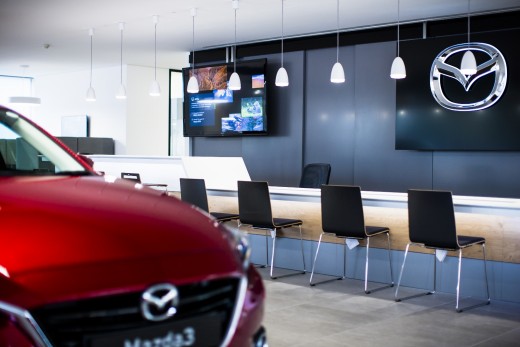Mazda UK’s Consumer Programmes Manager Richard Whittam reveals how car finance could evolve through 2016
We have seen a fantastic increase in the number of new Mazdas we’re selling through our finance packages over the past couple of years. Currently four out of every five Mazdas that we sell to private customers are bought through our Mazda Financial Services products. Consumers have become more comfortable making a monthly payment for their motoring and automotive finance has never been more customer-focused, transparent or competitive. I believe going forwards, customers could stand to benefit even further as the Bank of England looks to increase interest rates over the coming 12 months.
How can a rise in interest rates benefit car buyers?
Quite simply I suspect that car manufacturers will drive sales by offering more low-rate finance options and potentially fewer cash discounts. This means the car makers bear the brunt of any interest rate rises, and not the customer. Currently, many buyers forfeit a potentially lower borrowing rate from their bank in order to benefit from dealer and manufacturer finance deposit contributions that often go hand-in-hand with the car firm’s in-house finance product. I suspect the anticipated rise in interest rates will see consumers become even more interest-rate alert and ‘savvy’ towards the actual cost of borrowing. We are in a strong position as we currently offer zero per cent APR finance on Conditional Sale and Personal Contract Purchase across the majority of our models and I suspect a number of other manufacturers could follow suit.
Which is the most popular finance product?
Personal Contract Purchase (PCP) is our most popular finance product, and I would guess that several other brands will say the same. We sell around 70 per cent of our new cars on this type of finance product, and it is growing. This is because the customer’s monthly payment is affordable and flexible and unlike some other manufacturers we currently offer no minimum deposit on our PCP contracts, so if a customer wanted they could put zero deposit down. We see a high number of customers purchasing another new car at the end of their contract, taking the opportunity to renew or upgrade their car at regular intervals. That said, some customers do like to have the option of owning their car outright at the end of the contract, which PCP allows.
Personal Contract Hire (PCH) appears to be an increasingly popular product…
PCH is an interesting concept and a number of manufacturers are focusing very heavily on it. PCH originally stems from employers replacing company cars by offering employees a monthly cash allowance to provide their own cars whilst still giving them a company car experience, meaning they had a fixed monthly payment, over a fixed term but didn’t have any ownership liabilities. This created the Personal Contract Hire market, where the customer basically rents the vehicle for an agreed period, and it has now started to become more popular with retail customers and not just company funded drivers with a cash allowance.

Mazda is at the forefront of using imaginative finance products to change the way people buy cars
Will the PCH take off in 2016?
We’re now seeing various brands starting to actively promote and sell a large number of cars via PCH as retail customers become more comfortable with ‘renting’ a car without the ownership liability. This has historically favoured aspirational brands as it substantially lowers the cost of entry and monthly costs normally associated with premium brands, especially versus buying it in the traditional way. But we are starting to see it broaden out into more traditional mainstream manufacturers. It’s important to remember that with PCH drivers don’t ever have the option to own the car and it’s not as flexible as the PCP. You can’t renew into a new car before the contract matures (as you can with a PCP) without hefty charges and penalties. But that isn’t deterring buyers as they see running a car simply as a monthly living cost and aren’t necessarily put off by never owning the vehicle.
Why do you think PCH is becoming so popular?
Cars are fundamentally depreciating assets and through PCH the customer is completely protected from any fluctuations in used car prices. Also, because there is no ownership at the end of the agreement the required upfront payment/advance rental at the beginning of the contract can often make it accessible to people who might not have large deposits. This is attractive especially if customers are coming out of another PCH contract or perhaps don’t have any equity/part-exchange from a previous car to use as a deposit. There are down-sides to PCH though, contract mileage is fixed and can carry some hefty penalties if exceeded.
 Richard Whittam, Mazda UK Consumer Programmes Manager
Richard Whittam, Mazda UK Consumer Programmes Manager

